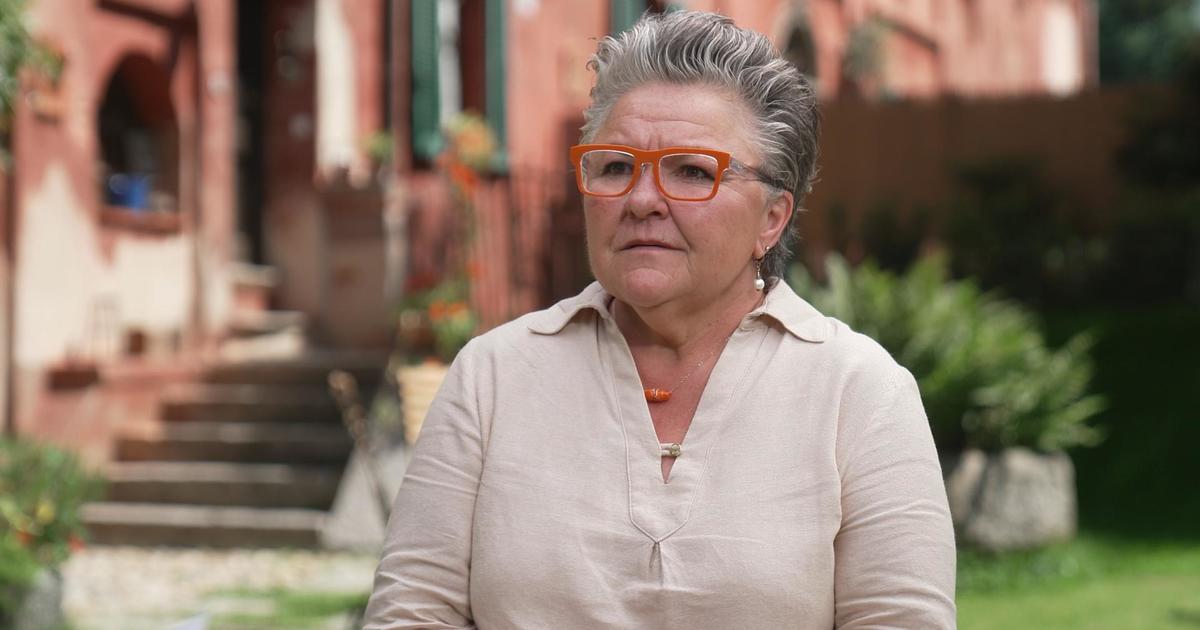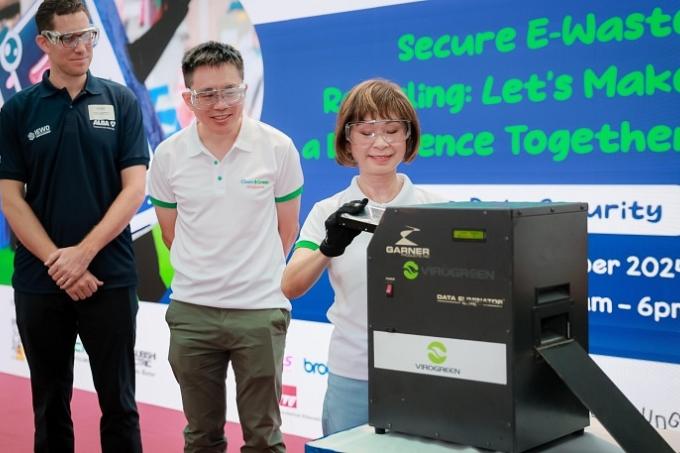During the 1950s, the Catholic Church in Belgium separated thousands of newborns from their unwed mothers and put them up for adoption, often without the mothers’ consent. The women were shamed into surrendering their babies by their families and a powerful church. Last month, Pope Francis apologized for those forced adoptions. But Belgians weren’t the only victims. From 1950 to 1970, the Vatican sent 3,500 Italian children to America on something called an orphan visa. The trouble was most were not orphans. Like their Belgian counterparts, they too were the children of unwed mothers. Many mothers later went searching for their children, only to discover they had been sent across an ocean. Today, thousands of American adoptees are still struggling to piece together their lost lives.It was a day he’ll never forget. American adoptee John Campitelli was 28 years old when he was reunited with his Italian birth mother. He’d been searching for her for more than a decade—a mother he’d been told had abandoned him. John Campitelli: My mom said you know, 28 years have gone by. I’ve never been able to bake a cake for you for your birthday. She says “I don’t care what month it is, I’m gonna bake you a cake. We need to celebrate cause our prodigal son has finally come home. John Campitelli was born Piero Davi in 1963 in Italy. His mother, Francesca, was unmarried and forced by her family to give him up. He was sent to a Catholic-run institution for the children of unwed mothers. Shunned and disgraced, Francesca handed her baby to the nuns. Immediately, her name was stripped from the birth records. With the stroke of a pen, Piero Davi became an orphan. Campitelli showed us the church documents that changed his life.John Campitelli: It says here, “they abandoned since birth and their whereabouts are unknown.” They knew damn well where my mom was. I mean she showed her documents when she handed me over. So, this is an outright lie.A lie John Campitelli has spent his life unraveling. As soon as he was declared an orphan, he was eligible for adoption and a U.S. visa. He says his mother told him she had no idea. She had every intention of coming back for him. John Campitelli: She said, “I never signed a paper anywhere saying that I was willing to give you up.”Bill Whitaker: She thought placing you in –in the institution was—was temporary?John Campitelli:She thought that it would be her right to be able to get me back someday when she got her life together. Bill Whitaker: She never signed you away?John Campitelli: No. She said “I placed you, because I couldn’t keep you at that point in time because of the family situation. But I never consented to the adoption or to the fact that you would leave Italy and you would be far from me for the rest of my life. Piero Davi was one of thousands of children born out of wedlock that the Vatican repackaged as orphans. The church arranged the visas, helped by a 1950 U.S. law that broadened the definition of orphan to include a child with one parent, but one who couldn’t provide care. With that leeway, the orphan program boomed. For Piero’s mother—and thousands like her—it was devastating to learn the child she’d entrusted to the church had disappeared. Bill Whitaker: It seems that many of these mothers had no idea that their children were being sent to the United States. Could they do anything about it?Maria Laurino: No, absolutely not. You can’t send a baby to the United States and then tell the adoptive parents that the, the birth mother wants the child. Author Maria Laurino uncovered the Vatican’s orphan program in her book, “The Price of Children.” She pieced the story together from hundreds of documents in the Church’s own archives in New York. Laurino told us the program hinged on a consent form the mothers were supposed to sign severing all rights to the child. But Laurino told us, doctors or lawyers sometimes signed the consent without telling the mother. Others were deliberately misled.Maria Laurino: There were women who were trapped into this situation um and tremendous pressure to relinquish their children. There were women who were, were tricked, who signed forms they didn’t understand. And, in the worst cases, there were women who were told their child had died.Bill Whitaker: Told their child had died?Maria Laurino: Yes. Bill Whitaker: What do you make of that?Maria Laurino: Yeah it’s so um it’s so horrible. The thinking I’ve been told, was that it was an easy—easier psychological closure to tell a birth mother that her child had died than to let her know that her child had been given up for adoption.Bill Whitaker: So representatives of the Church were telling these mothers that their children had died, when in fact they had not, and they had been sent to the United States?Maria Laurino: Yes. Laurino told us many more women were told they could get their children back. She found letters from distraught mothers pleading for their return.Bill Whitaker: Now these are letters that were found in the archives?Maria Laurino: That’s correct. This is a letter to Reverend Landi—Monsignor Landi: “I beg that my children be repatriated. If I cannot again see my children, I will shorten my life. I find myself deceived and I do not even know how….” Monsignor Landi was Andrew Landi, an American priest living in Rome who ran the orphan program. Landi’s boss had the ear of the pope. In 1951, Pope Pius the 12th personally saw the first children off. Thousands more would follow. Bill Whitaker: How could they be defined as orphans–Maria Laurino: I know.Bill Whitaker: If they still have a mother, and in many cases, a father still alive?Maria Laurino: Yes and to talk to the adopted children today, um they get very angry to say, “I am not an orphan you know, I spent years searching for my parents. Um but it was a linguistic construction.The Church charged $475 per child—about $4,500 today. But Laurino told us, the demand from eager American Catholics grew so fast that Monsignor Landi sent local priests to scour the countryside for more children. Maria Laurino: The correspondence shows that they traveled throughout Italy looking for cases, for children to send.Bill Whitaker: Literally looking for–Maria Laurino: Yes, there’s a–Bill Whitaker: babies born out of wedlockMaria Laurino: Yes. Bill Whitaker: It actually turned into a machine?Maria Laurino: Yes. Bill Whitaker: Looking for babies to send to the United States.Maria Laurino: Right.John Campitelli told us he had a loving family in New York. But when he found out he was adopted, he says he became obsessed with finding his birth mother. There were few clues. Even his surname—Davi—was a dead end, invented by the state to cut all ties. Finally, he persuaded an Italian newspaper to publish his story and then, a break-through—someone knew his mother. In 1991, he spoke to her for the first time. John Campitelli: She said, alright are you Piero? Well, no, I’m John. Oh well no, I’m really Piero. Okay, I’m your son.Bill Whitaker: So you were nervous I take it?John Campitelli: I was really nervous. ‘Cause it’s something that I always wanted to do but when the moment comes, you’re like–Bill Whitaker: Kinda tongue-tied.John Campitelli: Yeah, yeah, I was tongue-tied. I finally get to talk to the person that actually gave birth to me that that held me, that had breastfed me for two or three days in the hospital. So, I know that she loved me. Bill Whitaker: What was her voice like to you?John Campitelli: It brought me to tears, I must admit. And we, we said we were never gonna let go of each other from then on. Two months later he was on a flight to Italy. John Campitelli: We had exchanged photographs, but I said I didn’t need a photograph ’cause I saw that lady there in front of me and I said, “That’s my mom, she looks identical to me.” And after 28 years I could say that, you know, I just ran over to her, and I embraced her. And I said, “Mom, finally”, and I kissed her. I said “Mom, no one had to tell me who you were. I knew who you were. I just had to look at you.” Campitelli moved to Italy and learned Italian to speak to his birth family. But he told us, that didn’t undo the suffering the Church had caused.John Campitelli: I felt that my whole life was based on a lie. They told her that they would take care of me and that was a lie. They got rid of me; they didn’t take care of me. They cut all relationships that I could possibly have with my birth family and they shipped me overseas. I became a package for them.To this day, the Church insists the orphan program was the only chance for a new life for these children. Laurino told us, Monsignor Landi – who ran the program – died in 1999 without ever expressing any regrets.Maria Laurino: I think that he believed in the merit of the program, that they were bringing children to good Catholic homes, and that these children would be raised well in the United States.Bill Whitaker: But how does that explanation sit with you now?Maria Laurino: Terribly. I mean because this is how women were treated. And this is why I think of them as “disposable” women.Bill Whitaker: Disposable?Maria Laurino: Yeah. It’s a terrible thing to give up your child. But nobody was thinking about these women then. American adoptee Mary Relotto travels often to Italy to see her birth family. She told us, she had a happy life growing up in Ohio. But she says she longed for a large family, only to find out she had one. It was 1992 when she first met Anna Maria, her birth mother. Mary Relotto: The only thing I could do was stare and, and look at every inch of her for at least an hour.Bill Whitaker: And you’re dumbfounded?Mary Relotto: Not only does she look like me, but she acts like me. I act like her. We’re the same weight. It’s almost like this is my twin but older. I know exactly what I’m gonna look like when I get older. So now I pay attention to my health.Mother and daughter say they’re still learning about each other. Relotto told us it was years before she could ask the most painful question of all: why was she given away?Mary Relotto: I just needed to know her story, her truth because no mother gives up their child so willingly without grief.Bill Whitaker: Do you now understand why she gave you up?Mary Relotto: Because she didn’t have a piece of bread, she said, to give us. Bill Whitaker: Poverty.Mary Relotto: She didn’t have clothes for us. She was in a desperate situation. You know? So, instead of the church helping her maintain a house and feed her children, instead they, they took her children. Anna Maria is now 83. She agreed to speak with us if we withheld her last name. Even decades later, the stigma of having children out of wedlock remains. She told us about her other child, Christian, who was sent to a Church-run institution when she became ill. But when she went to pick him up, she says the nuns told her he had died. Anna Maria (In Italian/Whitaker English translation): I went into depression. Anna Maria told us. I searched for him everywhere. How did he die? Where was he buried? Nobody could tell me.Bill Whitaker: Did you believe that your son was dead?Anna Maria (In Italian/Whitaker English translation): Something inside me didn’t feel right. But I could do nothing about it.But Christian had not died. He told us he learned the truth about his mother at age 40. Anna Maria says the Church had put him up for adoption without telling her.Anna Maria (In Italian/Whitaker English translation): It was a swindle. She told us They stole a child that they wanted.Bill Whitaker: So what was it like for you when you found that Christian was in fact alive?Anna Maria (In Italian/Whitaker English translation): I have no words, She told us. There were lots of tears and hugs.The Vatican’s orphan program ended in 1970. But the fallout continues, rippling across generations. Mary Relotto told us, she never should have been sent to America.Mary Relotto: I think the church convinced her that it was the best thing for her. And so instead of helping her it was better for them to make money selling babies. That’s all I can think of you know. So, am I angry at the church? Hell, yeah, I am. I would have a different life too. And while it might have been difficult, I still would’ve survived it, without this kind of grief that I have inside of me now.Produced by Heather Abbot. Associate Producer, LaCrai Scott. Field producer, Sabina Castelfranco. Broadcast associate, Mariah Johnson. Edited by Peter M. Berman.
Subscribe
Login
0 Comments





